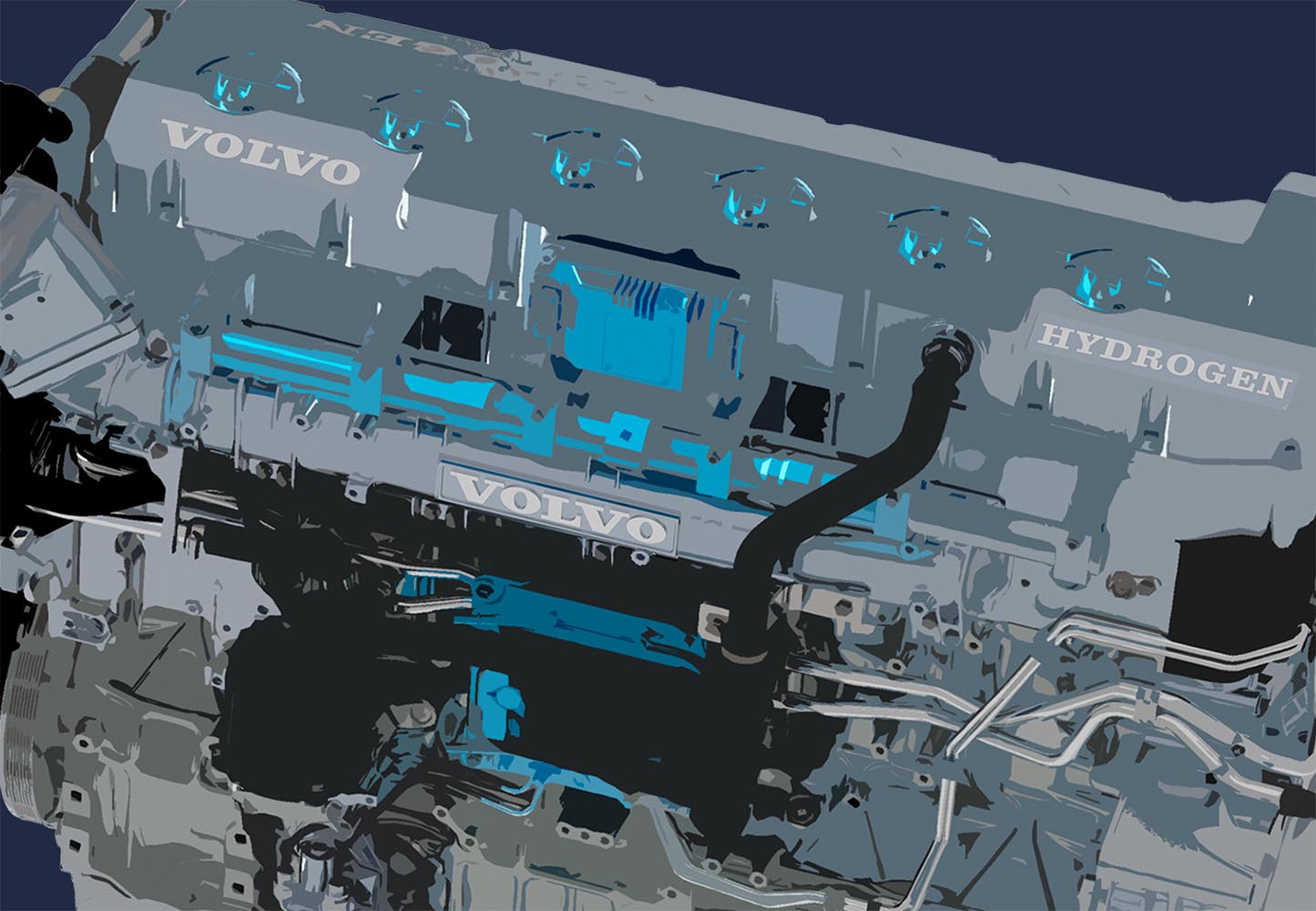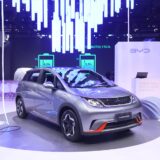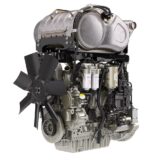
Volvo Group funds hydrogen research scholarships for combustion engines
The Volvo Group, a Swedish manufacturer of trucks, buses, construction equipment and more, aims to enable net-zero greenhouse gas emissions for its products and services by 2040. The company is funding research in battery-electric vehicles, as well as hydrogen fuel cell applications and hydrogen combustion engines.
On January 12, Volvo Group shared plans to sponsor two doctoral students conducting research related to hydrogen-powered internal combustion engines. The students will work at Chalmers University of Technology and Lund University in Sweden while employed by the Volvo Group.
According to Volvo Group Chief Technology Officer Lars Stenqvist, combustion engines fueled by green hydrogen could provide another solution alongside battery-electric vehicles to meet customer needs and sustainability targets. Internal combustion technology has played an important role throughout Volvo Group’s history, he said.
Public funding and student interest in researching traditional combustion engines has declined amid the shift towards electrification. Volvo Group aims to secure continued expertise by establishing the Volvo Internal Combustion Engine (VICE) scholarship program dedicated to hydrogen engine development.
“We believe the future will demand varied propulsion applications to meet our customers’ needs and environmental demands,” Stenqvist said. “I see hydrogen-powered internal combustion engines as another solution of high interest.”
Helping secure ‘exciting research’
Chalmers University President and CEO Martin Nilsson Jacobi welcomed the new scholarship as a way to further the school’s hydrogen research through industry collaboration.
“The technology being developed represents further steps in the transition to a fossil-free society,” he said.
At Lund University, Engineering Dean Annika Olsson noted Sweden needs strong research partnerships on sustainable propulsion innovations so companies can reduce fossil fuel dependence. “Hydrogen from surplus electricity is an example of an area where we together have the opportunity to achieve a technological leap for the benefit of the climate,” she said.
Focus on net-zero goals
The doctoral students will carry out research activities through 2029 after beginning in early 2024. As Volvo Group employees, they will have access to supervision, lab equipment and other resources to complete their PhD studies.
Stenqvist said the VICE scholarship initiative helps Volvo Group progress towards its overarching net-zero goals while also ensuring the continued development of internal combustion technology and research talent.
“It’s important for industry and academia to have a strong partnership and we welcome more initiatives to secure long-term knowledge of internal combustion engines,” he said.
Volvo Group currently offers commercial battery-electric vehicles and fuel cell electric vehicles. The company continues investing in hydrogen combustion alongside these options to provide customers lower-carbon solutions across a variety of vehicle and equipment categories.
Volvo Group currently offers commercial battery-electric vehicles and fuel cell electric vehicles. The company continues investing in hydrogen combustion alongside these options to provide customers lower-carbon solutions across a variety of vehicle and equipment categories.














